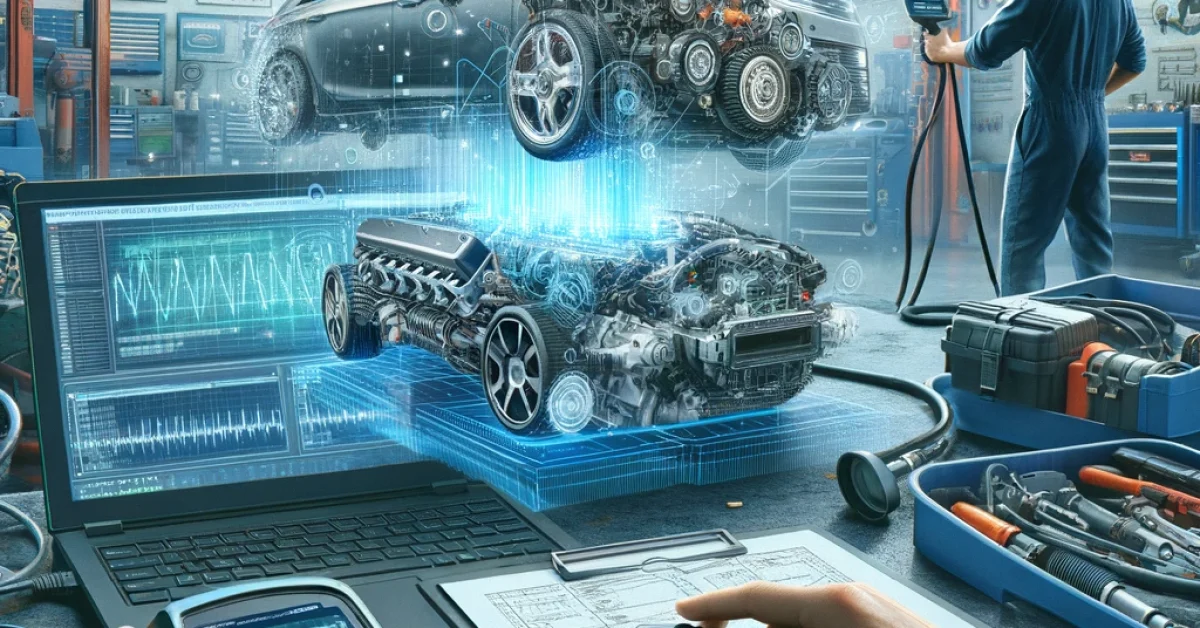Just like the human body, a car’s engine is a complex system that requires regular check-ups to ensure optimal performance and longevity. Engine diagnostics, the automotive equivalent of a medical examination, plays a vital role in identifying potential issues before they escalate into costly repairs or even engine failure. In this blog post, we’ll explore the importance of engine diagnostics, how they work, and why regular diagnostic tests are essential for maintaining your vehicle’s health.
What is Engine Diagnostics?

Engine diagnostics is a process that involves connecting your car’s onboard computer to a specialized diagnostic tool. This tool communicates with the vehicle’s various sensors and components, gathering data about the engine’s performance, emissions, and overall health. By analyzing this information, a skilled mechanic can identify any malfunctions, worn parts, or inefficiencies that may be affecting your car’s performance.
The diagnostic process can reveal a wide range of issues, from faulty sensors and clogged fuel injectors to misfiring spark plugs and exhaust leaks. By catching these problems early, you can prevent them from causing more extensive damage to your engine, ultimately saving you time and money in the long run.
Why is Engine Diagnostics Important?

In the fast-paced world we live in, it’s easy to overlook the importance of preventive maintenance for our vehicles. However, neglecting regular engine diagnostics can lead to a host of problems that can compromise your car’s performance, fuel efficiency, and even safety.
Here are some key reasons why engine diagnostics should be a top priority for every vehicle owner:
-
Early Detection of Problems:
Engine diagnostics allow mechanics to identify potential issues before they cause noticeable symptoms or lead to a breakdown. By catching these problems early, you can avoid more extensive and expensive repairs down the road.
-
Improved Fuel Efficiency:
A well-tuned engine runs more efficiently, consuming less fuel and producing fewer emissions. Regular diagnostic tests can help ensure that your engine is operating at peak performance, saving you money at the gas pump and reducing your carbon footprint.
-
Enhanced Safety:
An engine that isn’t running properly can pose a safety risk to you and your passengers. Diagnostic tests can identify issues that may affect your car’s handling, braking, or acceleration, allowing you to address them before they lead to a dangerous situation on the road.
-
Prolonged Engine Life:
By identifying and addressing problems early, regular engine diagnostics can help extend the life of your engine. This means you can enjoy your vehicle for longer without the need for costly engine replacements or major overhauls.
How Often Should Engine Diagnostics Be Performed?

The frequency of engine diagnostic tests may vary depending on your vehicle’s make, model, and age, as well as your driving habits. However, as a general rule of thumb, most experts recommend having engine diagnostics performed every 12,000 miles or once a year, whichever comes first.
It’s also a good idea to schedule a diagnostic test if you notice any unusual symptoms, such as:
- Check engine light illumination
- Rough idling or stalling
- Decreased fuel efficiency
- Strange noises or vibrations
- Difficulty starting the engine
By addressing these issues promptly, you can prevent them from escalating into more serious problems that could leave you stranded on the side of the road.
Conclusion:

Engine diagnostics is a crucial aspect of vehicle maintenance that should not be overlooked. By providing a comprehensive assessment of your engine’s health, regular diagnostic tests can help you identify potential problems early, improve fuel efficiency, enhance safety, and extend the life of your engine. So, the next time you schedule a routine maintenance appointment for your car, be sure to ask your mechanic about engine diagnostics – your vehicle’s heartbeat will thank you for it!




